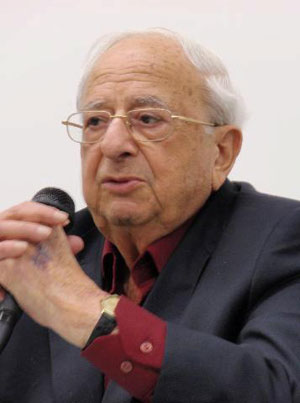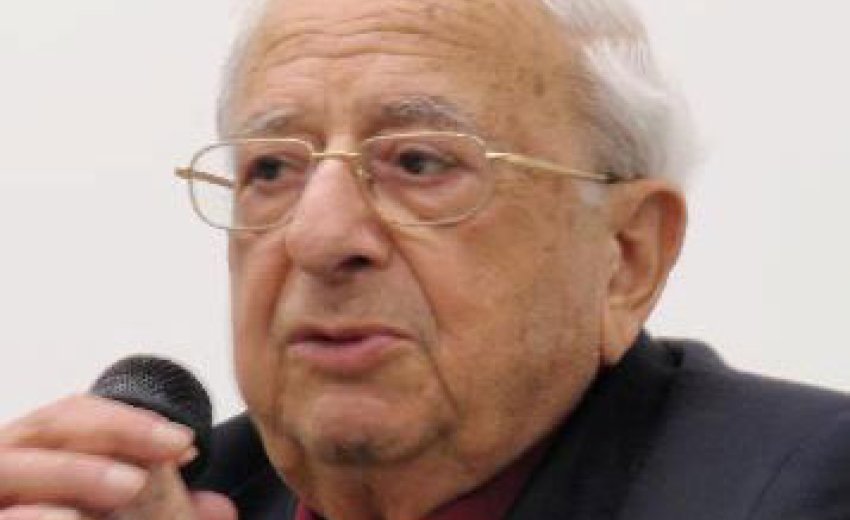TO REMEMBER & TO CELEBRATE
I.J. Singh
 Just this morning The New York Times carried an obituary of Yitzhak Navon. He
was the fifth President of Israel, serving from 1978 to 1983.
Just this morning The New York Times carried an obituary of Yitzhak Navon. He
was the fifth President of Israel, serving from 1978 to 1983.
Yes, he was a good Jew and one of Israel’s founding fathers. But he was 94, and death must come to all.
Yitzhak Navon’s biography reads like the life story of an ordinary man. So why do I take notice of his life today?
He was born in Old Jerusalem—one of the Sephardic Jews, a community that had been expelled from Spain around 1492. He remained committed to bridging the divide between Israel and its Arab neighbors, especially Egypt, and internally bridging the gulf between the Ashkenazy and the Sephardic Jews. At Hebrew University he studied Islamic culture, Arabic language and Hebrew literature. When he went to Egypt as president his was the first visit of an Israeli head of state to an Arab country
Remember the old adage: keep your friends close and your enemies closer.
And then came his crowning act that caught my attention: In 1982, the Christian Phalange militia in Lebanon carried out a massacre of Palestinians in their Refugee Camps of Sabra and Shatila. Mr. Navon was then nearing the tail end of his tenure and authority as President. He rightly asked, nay demanded and insisted, that a commission of inquiry be convened by the Israeli government to determine the extent of Israeli responsibility and culpability.
The office of the president in Israel is largely ceremonial and without much authority. As you can well imagine, there was considerable resistance to such a gesture by many Israelis. But Mr. Navon persisted, even to the extent of threatening to resign from his office and creating a Constitutional showdown and crisis.
This simple matter, and its sensible resolution, shines in glaring contrast to the extra-judicial killings of Sikhs in 1984 in India. According to the Indian government’s figures, over 3,000 Sikh, men, women and children were killed in the capital city of Delhi alone though; in fact, the numbers are an order of magnitude larger. And the killings went beyond the borders of Delhi to many cities across India. Yet today, 31 years and 11 vacuous Inquiry Commissions later, atonement and justice remain conspicuously elusive and absent. It was, in effect, a pogrom and attempted genocide of the Sikhs aided and abetted by the Indian government of the day.
And in sharp contrast to the actions of Yitzhak Navon in the Israel of 1982 stands the wrenching fact that the President of India in 1984 was a Sikh – Zail Singh. It was on his watch that the killings of Sikhs occurred. His silence in the matter was and has remained deafening.
But there is even more to Mr. Navon. He retired from the Presidency of his country but not from his place as a citizen and a decent human being. He fought elections as an ordinary candidate and was elected to the Knesset (Israel's unicameral parliament and legislative body) and then served as education minister in the cabinet.
Let me draw a somewhat ironic parallel to an incident in a local Gurdwara in New York. As seems the rule rather than the exception to it, this Gurdwara was going through some political conniptions in its committee structure. A long standing and popular President of the Gurdwara who had been in that position for a decade and was resisting all calls to step down and give someone else a chance. As a peace offering we suggested that we would appoint him to the very visible and responsible office of Secretary for the new term. He was seriously offended and his response was simple: “This would be a demotion. I am the President. Create a new title that is higher and I will accept that. Nothing else is acceptable.”
Apparently the President of Israel, Yitzhak Navon, did not see fighting for a seat in Knesset or working as the education minister for the next six years as a demotion, and in that he was not alone. Of the former Presidents the United States, John Quincy Adams served as a Congressman, Andrew Johnson as a Senator, and William Howard Taft as Chief Justice of the Supreme Court, all after having served as the nation’s president. These men did not view this as stepping down nor demotion in rank. This makes me wonder about and rue the supreme ego of our Gurdwara Presidents.
What values define us? What priorities move us? What realities do we live and die for? These are core questions for all of us.
Some people deserve to be remembered for their sheer humanity and decency. Yitzhak Navon was one of these people.
November 9, 2015





